Documenting Democracy at Chicken & Egg Pictures
As a nonprofit based in the United States, the Chicken & Egg Pictures team and many of the artist-activists we support have been closely following the recent election, watching as our country voted for a new leader in a time of global crisis.
Films about democracy and elections have long added to conversations about the democratic process on the national and international level and told the stories of our nations. As the US election cycle comes to a close, the following documentaries by women filmmakers from the past fifteen years of our organization are on our mind. Here are a few films by Nest-supported filmmakers that have used intimate storytelling to convey the power of democracy:
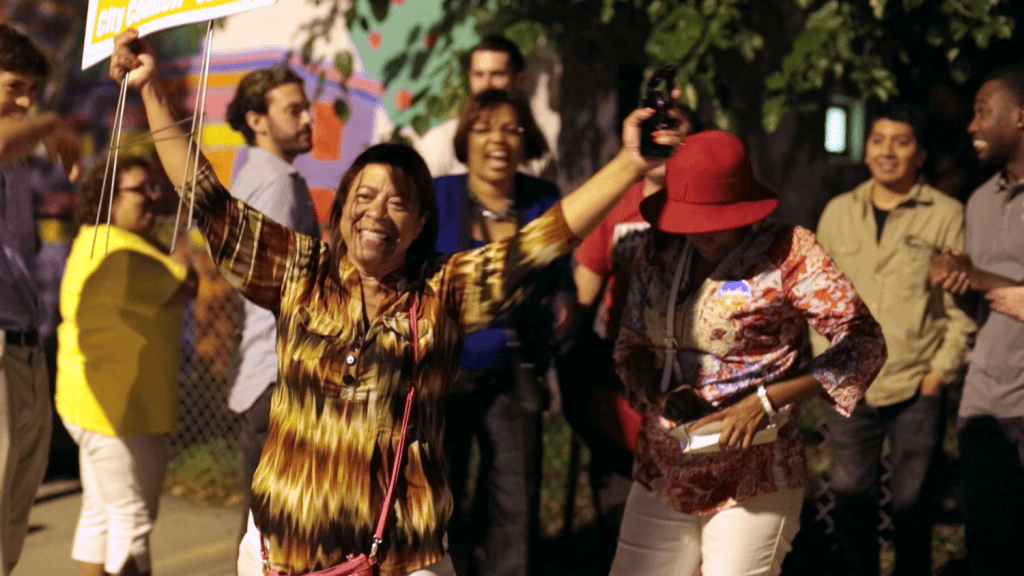
Councilwoman, directed by Margo Guernsey, follows a hotel housekeeper from the Dominican Republic who wins a City Council seat in Providence, Rhode Island. Carmen balances cleaning hotel rooms with navigating a political establishment that does not easily acquiesce to the needs of working people.
Watch on Vimeo.
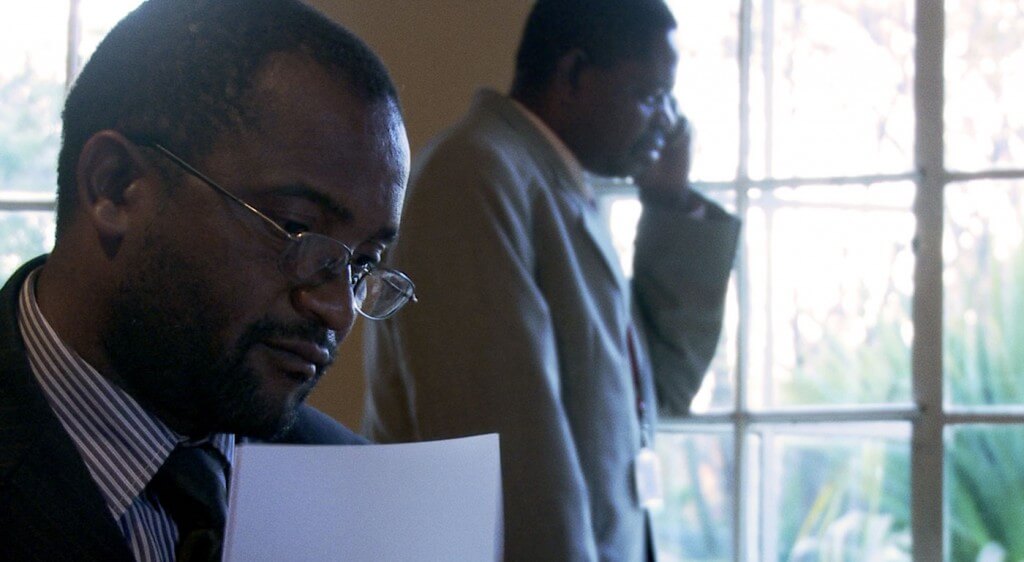
In Democrats, directed by Camilla Nielsson, two politicians from rival parties in Zimbabwe oversee the creation of a new constitution following the election of Robert Mugabe as president in 2008.
Watch on Apple TV.
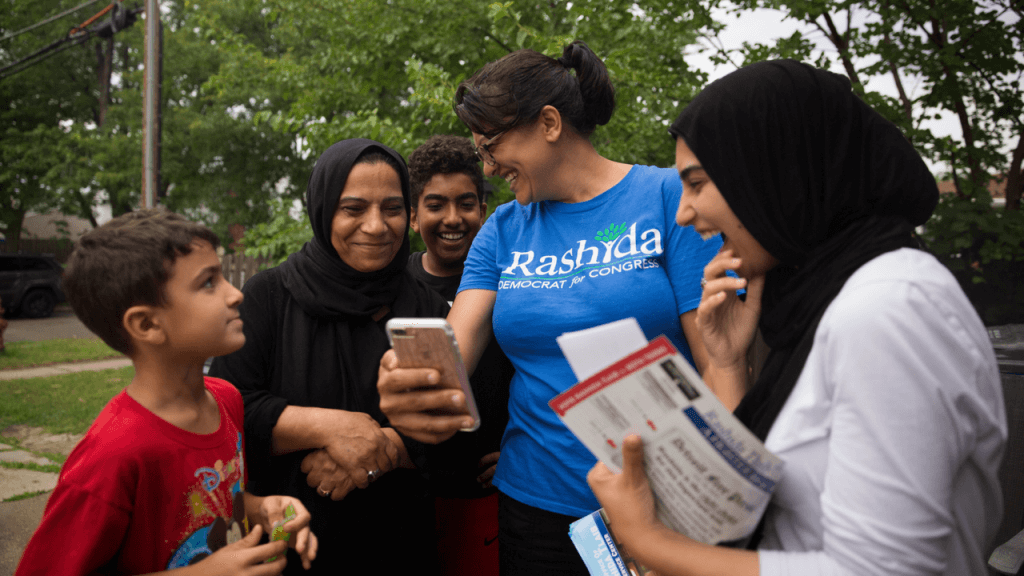
And She Could Be Next, co-directed by Grace Lee (Chicken & Egg Award Recipient) and Marjan Safinia (Chicken & Egg Pictures Board), tells the story of a defiant movement of women of color, transforming politics from the ground up. The series follows candidates and organizers across the country, asking whether democracy itself can be preserved—and made stronger—by those most marginalized, featuring history-makers including Rashida Tlaib, Stacey Abrams, Lucy McBath, Bushra Amiwala, Maria Elena Durazo, Veronica Escobar, Nse Ufot and more. Watch on PBS.

Once Upon a Time in Venezuela, directed by Anabel Rodríguez Ríos
On Lake Maracaibo, beneath the mysterious silent Catatumbo lightning, the village of Congo Mirador is preparing for parliamentary elections. For streetwise local businesswoman and Chavist party representative Tamara, every vote counts, fought by all means. While for opposition-supporting teacher Natalie, politics is a weapon that is unsuccessfully attempting to force her from her job. And with her sharp eyes, little Yohanny sees her community sinking from sedimentation, her childhood and innocence with it. How can a small fishing village survive against corruption, pollution and political decay—a reflection of all the flaws of contemporary Venezuela? If you are in the US, tune into DOC NYC to watch from November 11 – 19. Tickets here.
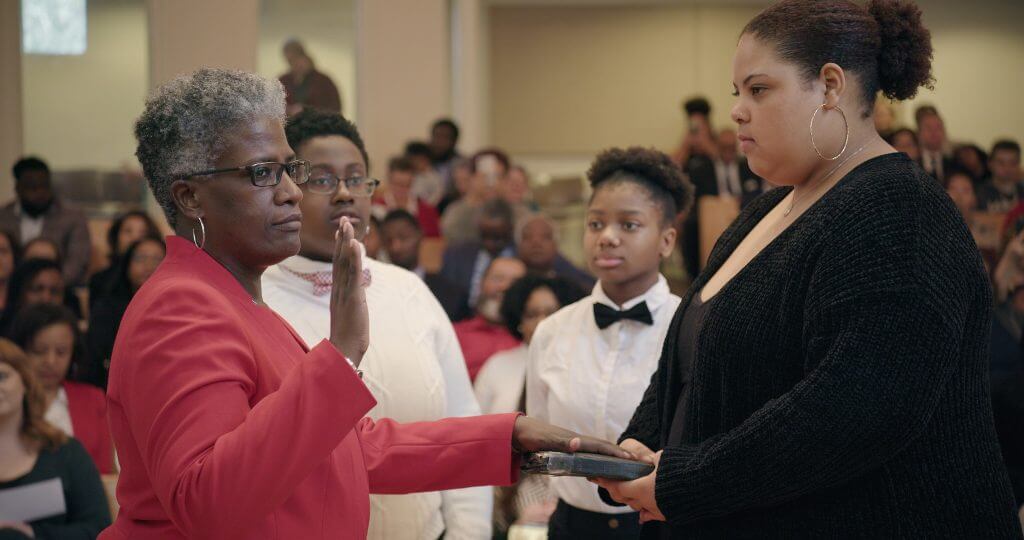
“I Am Not Going to Change 400 Years in Four,” directed by Angela Tucker and 2016 Chicken & Egg Award Recipient Kristi Jacobson, follows Satana Deberry as she takes the oath of office as district attorney of Durham County, North Carolina. Satana is a Black woman elected to an office historically held by white men whose “tough on crime” policies have devastated communities of color for decades. Now, she faces the complicated realities of seeking to reform a deeply flawed criminal justice system, and a community ravaged by gun violence. Her story is at once inspiring and empowering—and also a call to action, for voters across the US. “I Am Not Going to Change 400 Years in Four” was produced by Chicken & Egg Pictures in partnership with Mother Jones. Watch on Mother Jones.
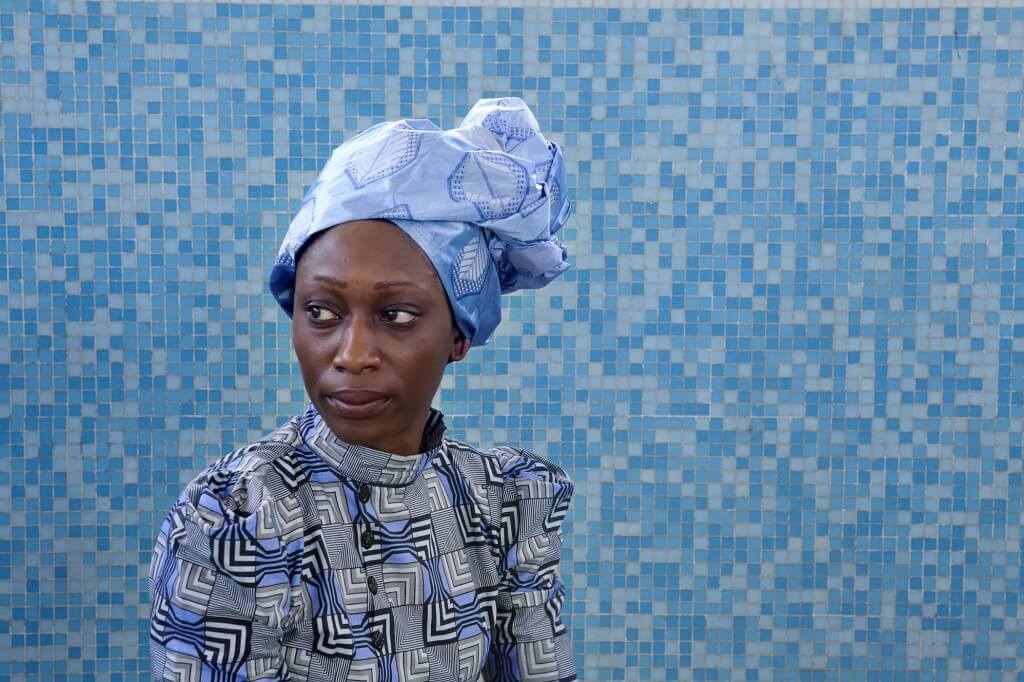
The Supreme Price, directed by Joanna Lipper, traces the evolution of the Pro-Democracy Movement in Nigeria and efforts to increase the participation of women in leadership roles. Following the annulment of her father’s victory in Nigeria’s Presidential Election and her mother’s assassination by agents of the military dictatorship, Hafsat Abiola faces the challenge of transforming a corrupt culture of governance into a democracy capable of serving Nigeria’s most marginalized population: women.
Watch at Women Make Movies.
